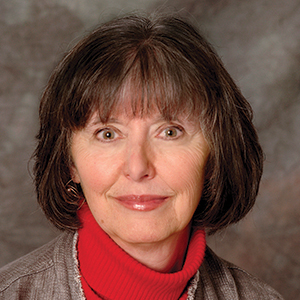-
Healthy Habits
Overlooking ObesityPublic awareness of the link between obesity and cancer risk is poor.
by Jane C. Hu
-
The Right Dose
Researchers want to find out when cancer patients can benefit from receiving lower doses of drugs or radiation, shortening treatment or skipping certain treatments altogether.
by Kate Yandell
-
Focusing on Proton Therapy
Proton therapy, an alternative to standard radiation therapy, is safe and effective. But evidence is lacking that it's always a better option than standard radiation, and some insurers balk at the higher price tag.
by Sue Rochman
-
Your Cancer Guide
Honesty: The Best Policy?Keeping your cancer diagnosis a secret can sometimes be a better option.
by Hester Hill Schnipper
-
Caregiving With Confidence
Caregiving and WorkGather information, know your rights and be ready to adjust.
by Diane Cameron
-
Get Involved
Patient NavigatorsPatient navigators can help cancer patients tackle the trickier points of accessing health care.
by Carisa D. Brewster
-
Putting Chemotherapy Side Effects on Ice
A small study shows that keeping ice chips in the mouth during oxaliplatin chemotherapy may prevent cold sensitivity, a common oral side effect.
by Anna Azvolinsky
-
The Week in Cancer News: May 3
Prospective CRISPR application targets cancer directly, HER2 testing accessibility poor in many countries.
by Bradley Jones
-
Coping With Trauma
Nearly six years after being diagnosed with stage IV colon cancer, disaster psychologist Jamie Aten is still learning new ways of coping with the trauma stemming from his diagnosis and treatment.
by Jamie Aten
-
Lung Cancer and Stigma
Clinical health psychologist Jamie Ostroff discusses how feelings of blame surrounding a lung cancer diagnosis affect physical and mental health.
by Jen Tota McGivney
Cancer Talk
Connecting More Patients to Cancer Clinical Trials
AACR conference brings experts together to discuss strategies to reach people historically left out of cancer research.
by Eric Fitzsimmons
Treatment Combination Improves Survival in EGFR-positive Lung CancerAdding chemotherapy to targeted therapy improves outcomes for people with advanced EGFR-positive non-small cell lung cancer.
by Sandra Gordon
Lessons From 20 Years Living With CancerMultiple myeloma survivor Jonathan Gluck reflects on uncertainty, and the scientific progress that has kept him living with cancer for more than two decades.
by Eric Fitzsimmons
The Enduring Importance of Cancer Disparities ResearchOpening session from AACR conference highlights how perseverance and adversity have informed cancer disparities research over the years.
by Eric Fitzsimmons















